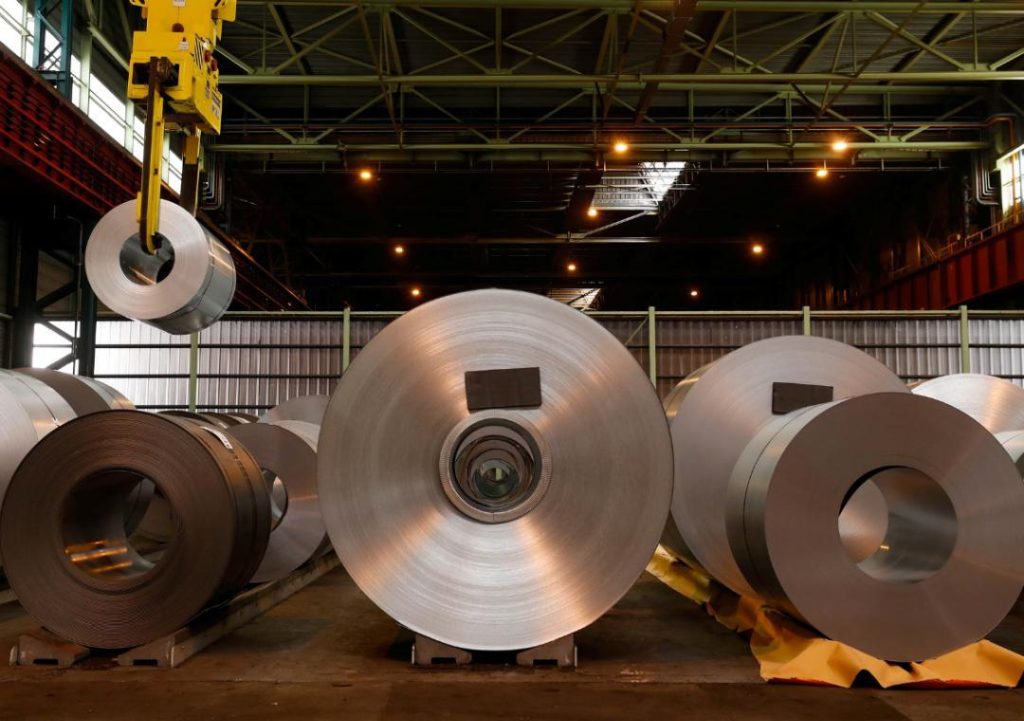
UK Seizes Control of Chinese Owner’s British Steel Plant to Stop Job Loss
In a surprise move, the British government has taken emergency action to seize control of the British Steel plant in Scunthorpe, one of the largest employers in the region. The decision was reportedly taken to prevent the loss of 2,700 jobs after the plant’s Chinese owner, Jingye Group, prepared to shut operations.
According to reports, Jingye Group had planned to cease production at the Scunthorpe plant, which is one of the largest steel production facilities in the UK, due to financial difficulties. However, the British government intervened, citing the significant economic and social impact that the closure would have on the local community.
The government’s decision was met with relief from union leaders and local residents, who had been bracing themselves for the worst after news of the planned closure emerged. “This is a major victory for the workers at Scunthorpe and the local community,” said Roy Rickhuss, general secretary of the Community union, which represents many of the plant’s employees. “The government’s intervention has saved thousands of jobs and prevented a devastating blow to the local economy.”
So, what does this mean for the future of the British Steel plant? According to reports, the government has assumed direct control over the company’s management and finances, effectively putting the plant under public ownership. However, officials have denied that the plant has been fully nationalized, with the intention of eventually returning it to private ownership.
The takeover is seen as a temporary measure to stabilize the plant and prevent job losses, with the government working to find a long-term solution to the plant’s financial difficulties. “We are taking immediate action to save the British Steel plant and protect thousands of jobs,” said Business Secretary Kwasi Kwarteng. “We will work with the company to develop a sustainable plan for its future and ensure that it remains a vital part of the UK’s manufacturing sector.”
The news has sent shockwaves through the UK’s manufacturing sector, which has been struggling to recover from the impact of the COVID-19 pandemic. The British Steel plant is a major employer in the region, with many employees having worked at the site for decades. The loss of so many jobs would have had a devastating impact on the local community, with many families reliant on the plant for their livelihood.
The decision to take control of the plant has been welcomed by local residents, who had been worried about the future of the plant. “We are thrilled that the government has taken this decision,” said Peter Robinson, leader of North Lincolnshire Council. “The British Steel plant is a vital part of our community, and we are grateful that the government has acted to save it.”
So, what does this mean for the future of the UK’s manufacturing sector? The takeover of the British Steel plant is seen as a strategic move by the government to protect a vital part of the country’s industrial base. The plant’s production capacity is a key part of the UK’s steel supply chain, and its closure would have had significant implications for the country’s manufacturing sector.
The government’s decision is also seen as a sign of its commitment to supporting the UK’s manufacturing sector, which has been struggling to recover from the impact of the pandemic. The sector has faced a range of challenges, including rising costs, declining demand, and a shortage of skilled workers.
In conclusion, the British government’s decision to seize control of the British Steel plant is a major development in the country’s manufacturing sector. The takeover is seen as a temporary measure to stabilize the plant and prevent job losses, with the government working to find a long-term solution to the plant’s financial difficulties.
The decision has been welcomed by union leaders and local residents, who had been worried about the future of the plant. The takeover is seen as a strategic move by the government to protect a vital part of the country’s industrial base, and a sign of its commitment to supporting the UK’s manufacturing sector.




